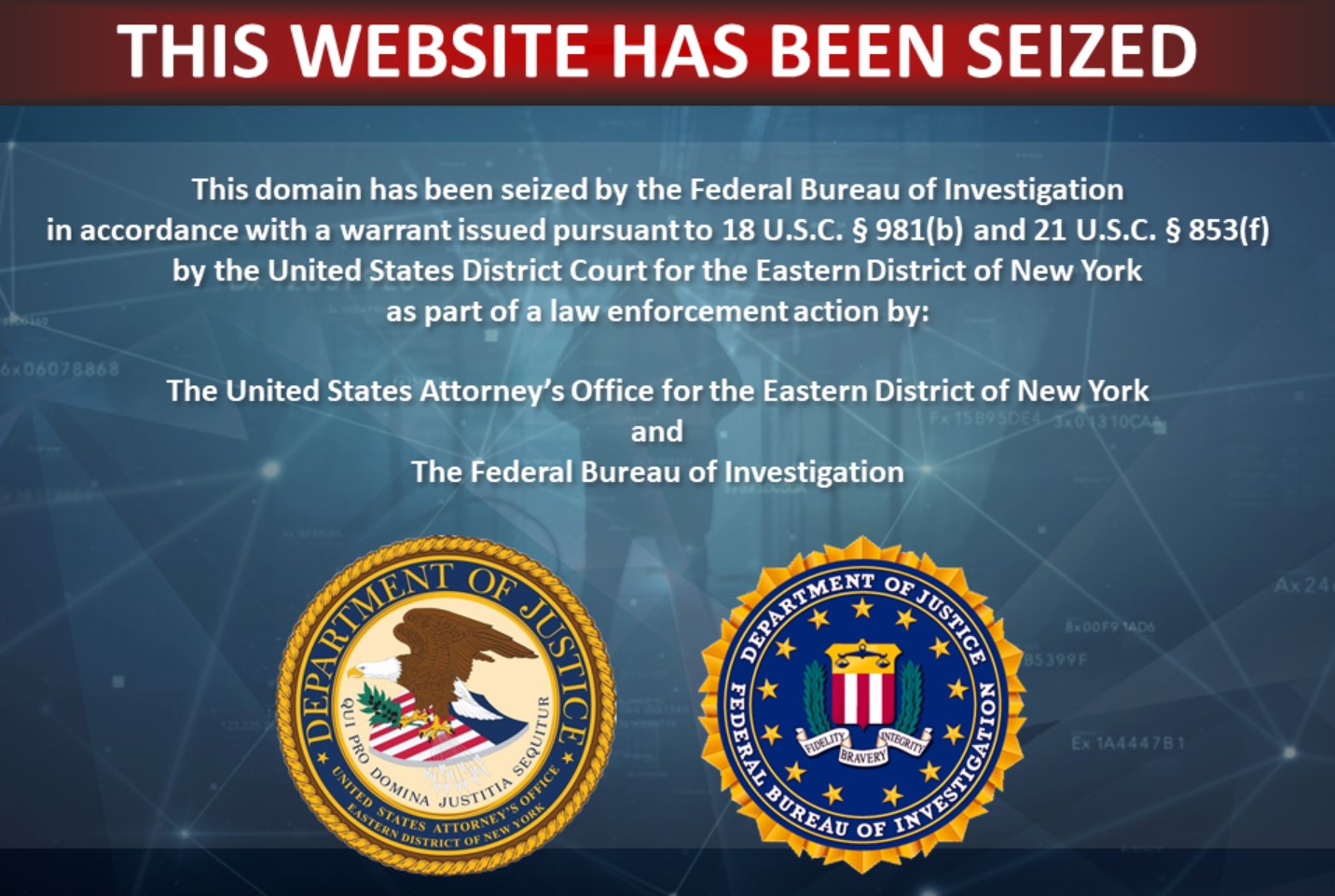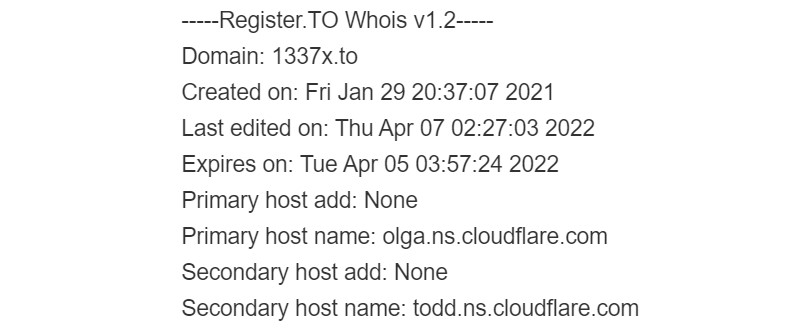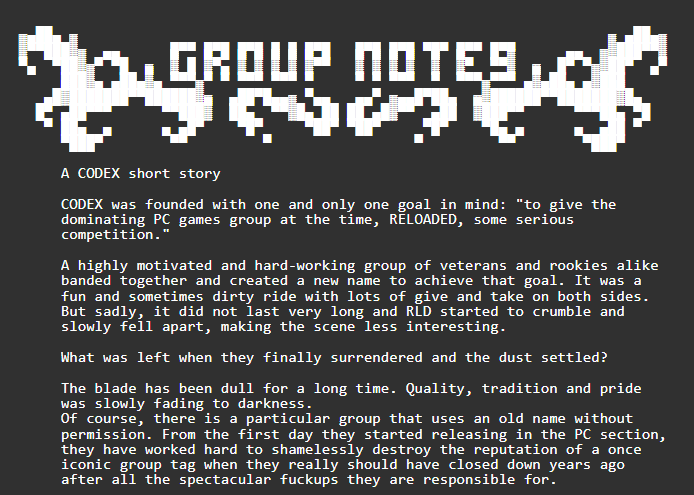 Every year we write hundreds of articles here at TorrentFreak, with some are more popular than others.
Every year we write hundreds of articles here at TorrentFreak, with some are more popular than others.
On the brink of the new year, we look back at 2022 by reviewing the thirteen most-read news items of the last 12 months.
All in all, it was quite a controversial year once again. The Z-Library crackdown and aftermath was a massive story. And with a criminal investigation into two of the site’s alleged operators, that will likely continue in the coming year.
Various leaks, domain troubles, and court orders made top headlines as well. The most popular articles are listed below, grouped into the twelve biggest stories of the year.
1. Z-library Shutdown and Aftermath
Z-Library shows up in several of the most-read articles this year. The site first appeared in the news during October when we revealed that TikTok had banned the Zlibrary hashtag following complaints from authors. That was just the start, however.
In November, the U.S. Government seized Z-Library’s main domain names. Soon after, the authorities revealed that two alleged Russian operators had been arrested in Argentina as part of a criminal investigation.

While the indicted duo await potential extradition to the United States, Z-Library remains operational on the dark web. In addition, Telegram bots and archive sites try to satisfy the demand for pirated books.
—
2. Pirate Sites Disappear from DuckDuckGo
In April, we noticed that several high-profile “pirate” sites were unfindable in DuckDuckGo’s search results. It wasn’t clear why these domains disappeared but The Pirate Bay, Fmovies, YTMP3.cc, and many others were no longer showing up.
After some back and forth, Bing was identified as the culprit. DuckDuckGo said it would work hard to mitigate the problem. The missing sites eventually returned to DuckDuckGo and Bing search results.
—
3. US Court Orders Every ISP in the United States to Block Illegal Streaming Sites
In May, a coalition of Israel-based media companies obtained a broad injunction at a New York court that required every ISP in the United States to block three pirate streaming sites.
This requirement was met with massive opposition from prominent companies such as Google and Cloudflare, after which the parties eventually agreed to seek a less explosive compromise.
—
4. Adblocking Does Not Constitute Copyright Infringement
In January, Axel Springer lost its copyright infringement lawsuit against Eyeo GmbH, the company behind Adblock Plus. The German publishing house, which owns the Bild and Die Welt brands, among others, claimed that adblockers interfere with the presentation of websites in browsers, thus breaching copyright.
The Hamburg District Court disagreed and decided to dismiss the case. According to the court, ad blocking doesn’t involve any unauthorized duplication and/or reworking of copyrighted computer programs, as defined in Germany’s copyright law.
—
5. “House of the Dragon” Fills GOT’s Shoes
The long-awaited premiere of “House of the Dragon” finally arrived in August. The Game of Thrones prequel immediately proved a hit on pirate sites, where the first episode was widely available nearly a day before the official release. As a result, hundreds of thousands of pirates watched the show before paying customers.
House of the Dragon made piracy headlines once more when the season finale leaked early. The circle was completed this week when – in true Game of Thrones spirit – House of the Dragon became the most pirated TV show of 2022.
—
6. Genshin Impact Leaker Ubatcha
A few weeks ago, prolific Genshin Impact leaker ‘Ubatcha’ was targeted in a DMCA subpoena application filed by publisher Cognosphere. The legal uncertainty left its mark, much to the disappointment of Ubatcha’s close followers.
The question now is whether Cognosphere will leave things as they stand or push forward with a full-blown lawsuit to send a deterrent but potentially fan-alienating message.
—
7. Netflix Password Sharing is a Crime?
Earlier this month, the UK Government’s Intellectual Property Office published new piracy guidance. To the surprise of many, it warned that sharing passwords for streaming services such as Netflix is illegal, and may even incur criminal liability for fraud.
Soon after we uncovered this unusual advice, the Office quietly updated its tough warnings, removing all references to password sharing.
—
8. Spider-Man: No Way Home Leaked Early
In March, a high-quality Blu-ray copy of ‘Spider-Man: No Way Home’ leaked online, weeks before the official physical release.
The pirate copy was released by EVO, the same group that previously leaked many other prominent titles before disappearing later in the year. While the Blu-ray source is unknown, an unauthorized eBay seller coincidentally offered the disc for sale around the same time.
—
9. 1337x Became Unreachable
1337x.to, one of the world’s most-visited torrent sites, became unreachable in April. The site’s DNS records had been wiped, which made it impossible for browsers to resolve the domain.

As it turned out, someone forgot to renew the 1337x.to domain name before it expired. This oversight was eventually spotted and the team managed to extend the registration before it was gone for good.
—
10. Why the “You Wouldn’t Steal” Campaign Didn’t Work
You wouldn’t steal a car, right? So why are you pirating? With this 2004 message, the movie industry hoped to turn illegal downloaders into paying customers.
While the campaign is arguably the most widely known ani-piracy PSA, a new research paper identified several behavioral insights that explain why these and other initiatives often fail to reach the desired outcome.
—
11. MindGeek’s Anti-Piracy Efforts
In April, adult entertainment conglomerate MindGeek won a major court battle against Daftsex.com. In addition to $32 million in damages, the court issued an injunction allowing the rightsholder to take over this and other domains.
Interestingly, ‘someone’ tried to hijack the domain takeover process by posing as MindGeek in an email to domain registry Verisign.
—
12. Iconic Cracking Group Codex Quits
In February, Scene cracking group CODEX officially threw in the towel. The iconic tag had taken the cracking world by storm during the prior eight years. The group was able to crack even the toughest copy protections, instilling fear among game publishers and garnering respect among its peers.

CODEX represented competition for RELOADED, the dominant PC games cracking group at the time. When the competitive element disappeared, the group felt it had reached its goal.
“So now, years after reaching our initial goal, we feel that it is time to move on. We thank everyone who accompanied and supported us on our journey,” the group wrote.
—
13. How Bungie Used Digital Trails to Track Down an Imposter
In response to persons unknown sending large numbers of fake DMCA notices to YouTube while impersonating its anti-piracy partner, Bungie filed a lawsuit in the U.S. seeking millions in damages.
At the time the name of the ‘Doe’ defendant was unknown. We unveiled how a Bungie investigation followed digital breadcrumbs to track down and identify that person by name and physical address.
—





